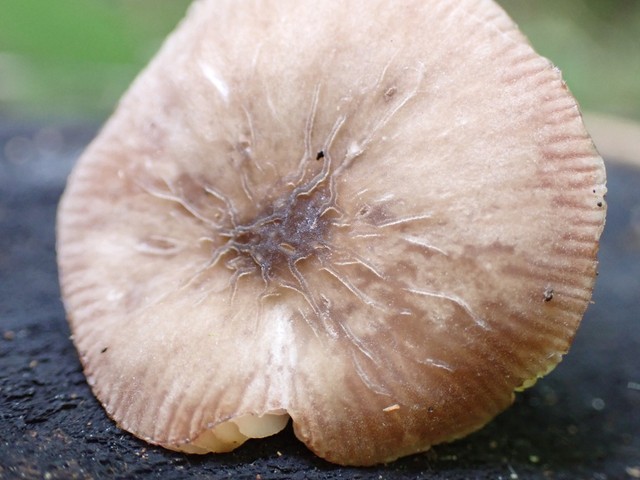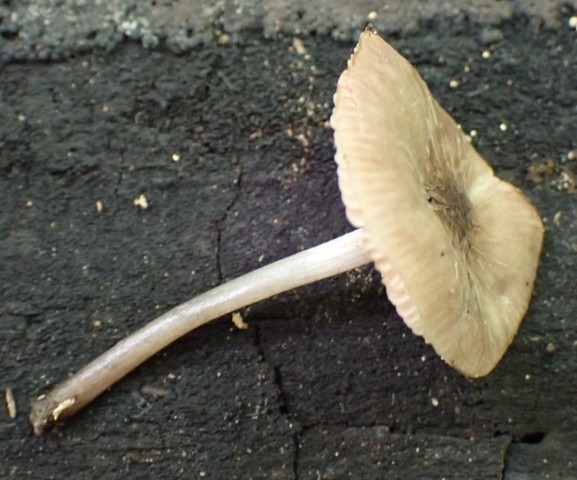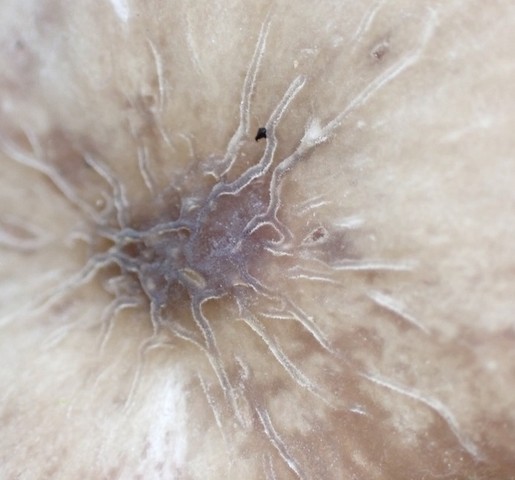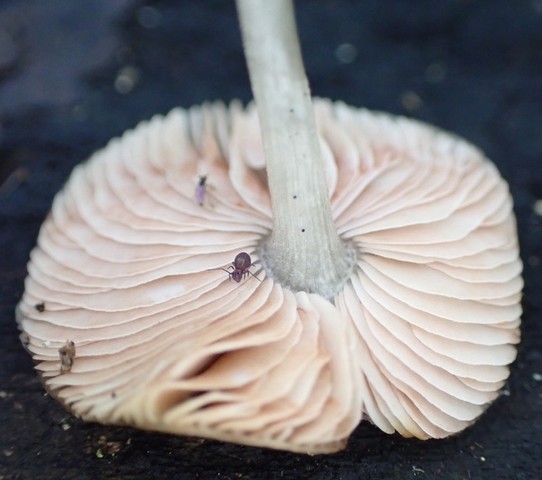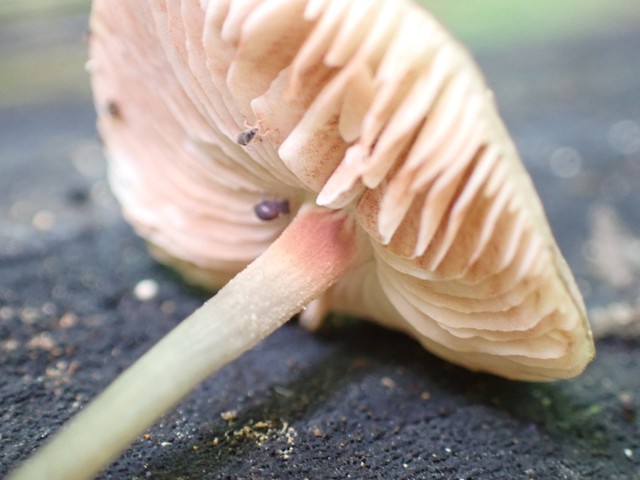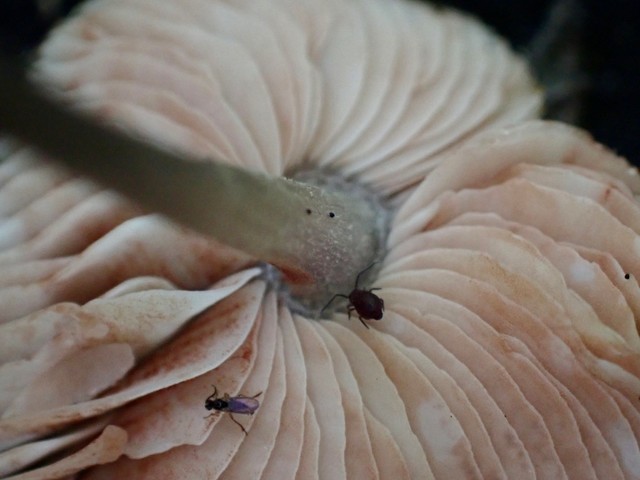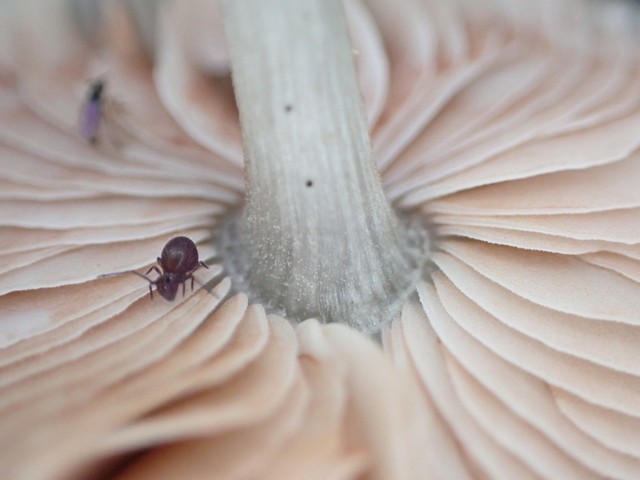Veined Shield
Pluteus thomsonii-IN03
Life > Fungi > Basidiomycota > Agaricomycotina > Agaricomycetes > Agaricomycetidae > Agaricales > Pluteineae > Pluteaceae > Pluteus
Description
The Veined Shield is a photogenic decomposer of dead deciduous trees and woodland debris in the spring and fall. It can be found mostly distributed in eastern North America, but also has been reported in California. Pluteus thomsonii is better considered as "Pluteus thomsonii group" as many genetically distinct species have been found in North America alone, hence the provisional name for this specimen, Pluteus thomsonii-IN03, which is the third genetically distinct P. thomsonii-like species found in Indiana alone... Don't you love the chaos and confusion of North American mycology?
The most distinctive feature of Veined Shield is of course the veined pattern on the cap surface which is highly variable and always a fun find. Doesn't nature have the most bizarre patterns? The cap is evenly rounded to flat in shape with radially aligned lines at the margin.
The gills are free from the stem and start out white colored when young becoming pink with age. The stem is even and doesn't possess an annulus nor a volva. The spore print is pink, which can be seen on the stem in the following photo.
September 13th, 2023 Field Notes - Indian Cave State Park
- Growing on large brown-rot hardwood log in low shady, riparian woodland area.
- Cap with raised wrinkled texture on pileipellis.
- Lamellae pinkish and free from stipe.
- Stipe slightly gray-blue at apex.
References
Kuo, M. (2015, June). Pluteus thomsonii. Retrieved from the MushroomExpert.Com Web site: http://www.mushroomexpert.com/pluteus_thomsonii.html
Pluteus thomsonii (Berk. & Broome) Dennis, Transactions of the British Mycological Society 31 (3-4): 206 (1948) [MB#344243] https://doi.org/10.1016/S0007-1536(48)80002-1
Created February 21, 2026 at 10:41 AM
